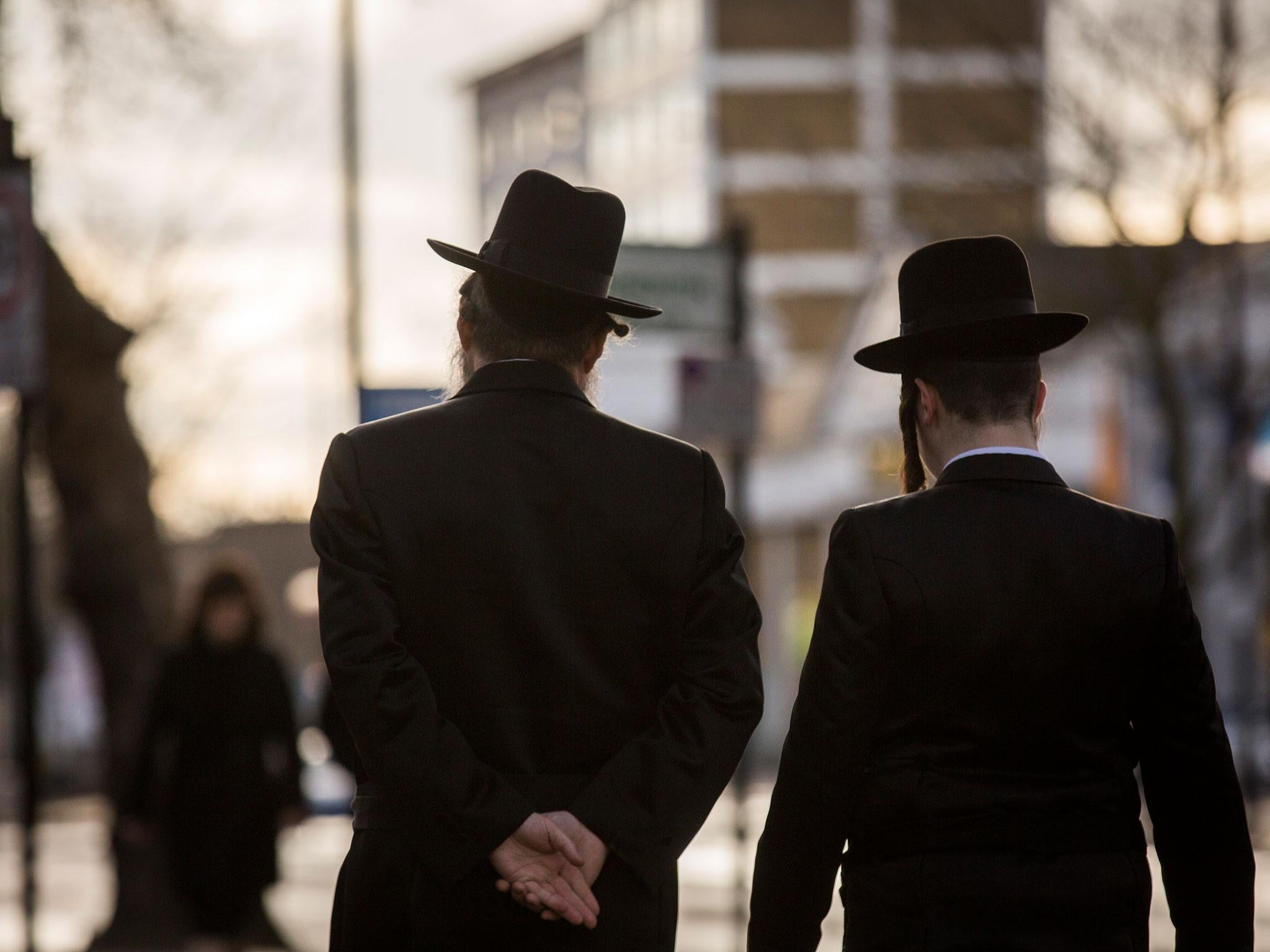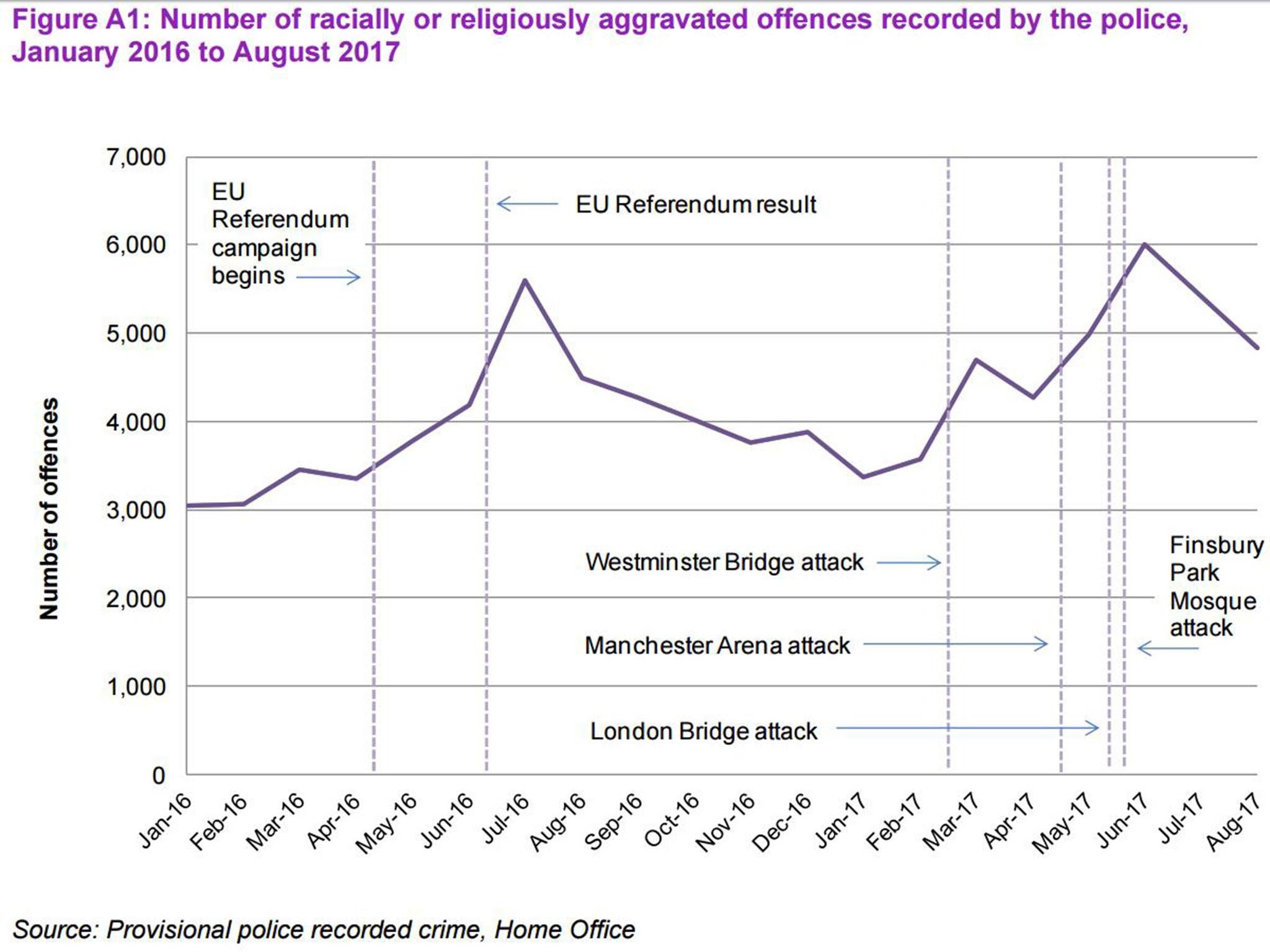More than 100 antisemitic incidents recorded in UK every month as bigots ‘become more confident’
Community Security Trust warns of ‘longer-term phenomenon’ after recording second-highest number of incidents ever

More than 100 antisemitic incidents are being recorded every month in Britain as monitors warn bigots are becoming “more confident to express their views”.
Children as young as 11 have been physically attacked, while appalling graffiti has been daubed on homes and synagogues and MPs have been targeted with antisemitic abuse after speaking out on the issue.
The Community Security Trust (CST) counted the second-highest number of incidents on record between January and June this year, citing issues including violence on the Gaza border and debate around the Labour Party as drivers.
Chief executive David Delew said the findings “continue a trend that has now lasted for over two years”.
“This antisemitism is not a random event, it reflects the state of British politics and wider society,” he added.
“Each month we are seeing over 100 antisemitic incidents and many more go unreported. We will keep working with all of our partners inside and outside the Jewish community to do all we can against antisemitism.”
Of the 727 incidents recorded, three quarters were categorised as abuse, including antisemitic graffiti, hate mail and social media posts, and the vast majority happened in the main Jewish centres of London and Manchester.
There were also 59 violent assaults, 53 direct threats, 43 incidents of damage and desecration of Jewish property – including gravestones – and 28 incidents of mass-produced literature being sent out. Just over a fifth of incidents involved social media.
In February, “Adolf Hitler was right” was scrawled on a fence in Merseyside, then in April MPs were targeted with antisemitic abuse following a parliamentary debate on the issue.
In May, an 11-year-old schoolboy was physically attacked in Sussex in the wake of sustained abuse by children who shouted statements including “death to all Jews”, “Hitler was the f**king greatest” and “burn all Jews”.
Incidents peaked in April and May – a rise the CST partly attributed to “reactions to political events in the UK and overseas”, including a debate on antisemitism within the Labour Party and violence on the border of Israel and Gaza.
It recorded 34 antisemitic incidents in the first six months of 2018 that included explicit reference to the Labour Party.
The report was published on the same day three leading Jewish newspapers took the unprecedented step of publishing a joint front page message warning that a Corbyn-led government would pose an “existential threat to Jewish life in this country”.
It was sparked by Labour's refusal to adopt the International Holocaust Remembrance Alliance’s (IHRA) full definition of antisemitism in its new code of conduct.
Andrew Gwynne, Labour’s shadow communities secretary, said the party was “committed to tackling antisemitism in all its forms”.
“These findings of historically high levels of antisemitism show just how much more needs to be done to confront and call out this despicable form of abuse,” he added.
“Antisemitism has no place in society, and we all have a responsibility to confront and call it out.”
A further 77 antisemitic incidents also showed an anti-Israel motivation, the CST said.
But the report found that “rather than being linked to specific trigger events, this sustained high level of antisemitic incidents suggests a longer-term phenomenon in which people with antisemitic attitudes appear to be more confident to express their views, while incident victims and reporters may be more motivated to report the antisemitism they experience or encounter”.
The most common target was “visibly Jewish” people in public spaces, followed by Jewish organisations, events and commercial premises, homes and synagogues.
Where the offender’s appearance was known, the majority were described as white, and the vast majority were male.

The CST said it received reports of a further 340 potential incidents, but did not record them after investigations that found no evidence of antisemitic motivation or targeting.
Assistant chief constable Mark Hamilton, the National Police Chiefs’ Council lead for hate crime, said the phenomenon was underreported.
“Trusted charities, such as CST, provide a valuable alternative option for those victims who do not wish to report direct to the police,” he added.
“We have a formal Information Sharing Agreement in place which ensures that their work informs policing decisions, in real time, in order to help protect our communities. No one should have to face antisemitic hate crime.”
The CST’s report came days after the Islamophobia recording group Tell Mama reported rocketing street attacks on Muslims in Britain.
The group warned of a “marked shift” towards more serious offline incidents like physical attacks, vandalism and abuse, as hatred continues to spread on social media.
The most recent government figures on hate crime showed unprecedented spikes following the EU referendum and the terror attacks in London and Manchester.
The vast majority of crimes were racially motivated, standing at 78 per cent, followed by sexual orientation, religion, disability and transgender hate crimes, although police said many were driven by more than one category.